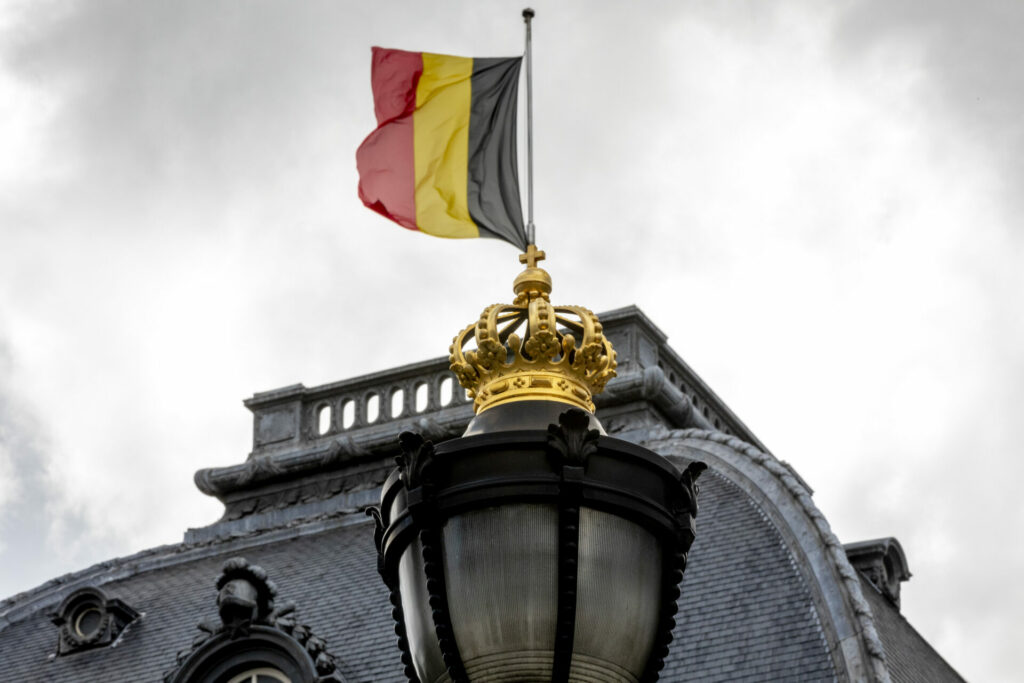The latest poll conducted, by a consortium of Belgian media organisations, Het Laatste Nieuws, Le Soir, RTL TVi and VTM, has outlined the political preferences of Belgian voters ahead of the 2024 Federal Elections.
The results confirmed previous ideas of Belgian politics: a predominantly left-leaning Wallonia, a centre-left leaning in Brussels and a strong right-wing in Flanders, geared towards independence.
Regionally, the francophone liberal party MR is leading in Brussels, closely courted by the Belgian Workers’ Party (PTB). In Flanders, Flemish nationalists Vlaams Belang and N-VA (far-right and right-wing respectively) are the two leading parties, while in Wallonia, Paul Magnette’s socialists break away from George Louis Bouchez’s MR.
In terms of popularity, three liberal politicians come out on top: Alexander De Croo, Sophie Wilmès, and Hadja Lahbib.
Belgium
Among the political families at the Belgian level, the francophone Socialist Party (PS) and Vouruit in Flanders – both part of the S&D group in the European Parliament – have the largest seat projection at the national level with 32.
Tied at 24 seats are Vlaams Belang – an indication of its dominance in Flanders – and the liberal political family, MR and Open VLD (Renew in the European Parliament), with the latter being up two.
N-VA is in fourth with 20 seats, but like Vlaams Belang, only Flemish people are able to vote for them, meaning they are propelled into parliament thanks to huge support in the Flemish region. The Belgian worker party (PTB-PDVA) is stable at 18 seats. The Belgian Green Parties (Ecolo and Groen) have lost one seat, down to 15.
However, with 81 seats, the current Federal Government (PS, MR, Ecolo, Groen, CD&V, Open VLD, Vooruit) retains the majority in the Federal Parliament, according to projections. The result of 81 seats is better (by one) than the previous survey carried out last December, but still well below the 87 seats obtained in the May 2019 parliamentary elections.
Brussels
Francophone liberals MR lead across the Brussels-Capital Region with 20%, closely tailed by a significant rise of the Belgian Workers Party (PTB)– who are up 3% to 19%, and are ahead of the Socialist Party (PS) and francophone greens, Ecolo.
MR, which polled 19.8% of voting intentions, is first in the ranking but is down 0.5% from the survey of last December, but still 2.3% better than in the 2019 elections.
Behind them, the PTB is making up the ground at a substantial pace, jumping from 12.3% of the vote in the 2019 elections to 19.4% of voting intentions today, and is only 0.4% behind leaders MR.
In third place, the Socialist Party (PS) continues to drop heavily. In the latest poll, PS counted 16.8% of voting intentions, compared to 20% of the vote in 2019, and 21.6% of voting intentions in the December 2022 poll.
Fourth with 15.7%, the francophone greens, Ecolo, slightly improved their result from the previous poll in December, where it received 13%, but is doing worse than in the 2019 elections, where it won 21.6% of the vote.
Stable, centrists Défi polled 10.2% of voting intentions, while conservatives Les Engagés are down to 5.1% of voting intentions, compared to 5.8% of the vote in 2019.
Wallonia
In the southern region of the country, the gap is widening between socialists and liberals. The Socialist Party (PS) continues to go from strength to strength under leader Paul Magnette, who is also the Mayor of Charleroi.
In first, PS polled a comfortable 26%, while the gap with second-placed MR (19%) led by George Louis Bouchez, has widened by 7% – the largest between the two main political formations in Wallonia since the beginning of the legislature. The Belgian Workers Party (PTB) is in third with 18%, and the Greens (Ecolo) with 13%.
There is also less than one percentage point difference between MR and PTB, the third largest party in terms of voting intentions. In the past, PTB has already achieved better results in the survey, but like Ecolo, they are stable. The former at 17.6% this time and the latter at 12.8%, scores that have changed little since December 2022.
A significant breakthrough is finally to be found on the side of the Engagés, which finally regains some colour with 11.1% of voting intentions.
Flanders
In Flanders, aside from the seemingly unsurmountable rise of nationalist right-wing independentism, the party of Belgian Prime Minister Alexander De Croo has sunk to its lowest results ever recorded for the party in Flanders: 9%.
Far-right party Vlaams Belang is still leading the polls in the Flemish region, with 25% expressing a preference for the separatists and nationalists.
In second place, another Flemish independence party, N-VA remains stable at 22% – with leader and Antwerp Mayor Bart De Wever’s recent anti-woke push seemingly not having made as much of a splash as was maybe hoped.

